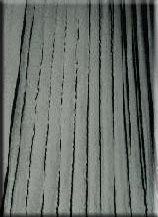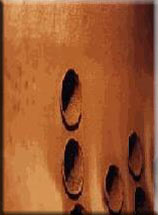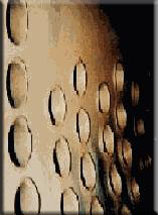Murrell and Brad Ramsey formed RSI in 1978. RSI’s primary business focus until 1984 was conventional water treatment chemicals, water softeners and filtration.
In 1984, Professor Tom Murray, Jr. of the University of Louisville’s Speed Scientific School contacted RSI about an IONIZATION PROCESS he was working with to control scale, corrosion and bacteria in systems utilizing water as a heat transfer. This technology was a refined usage of impressed current cathodic protection, the same technology that had been used in the shipping and pipeline industry for over 100 years.
RSI tested the process under controlled situations as part of a closely monitored service. RSI determined that when applied properly, the program could control scale, corrosion, bacteria and algae. Today RSI provides environmentally safe water treatment in over 3,000 systems throughout the world. In the United States, RSI Team Green service is provided through a combination of direct sales, trained dealers and HVAC service companies.
Lab Test
The following test illustrates how Ecology Cells™ prevent and remove scale from the heat exchange areas of cooling tower and boiler systems.
The basis of the test is the fact that all scale has a definite crystalline structure and is held together by small electrical charges within the crystals. By disrupting these electrical charges, the Ecology Cells™ prevent scale crystals from forming. In this test sodium chloride (salt) is used because of its easily recognizeable cube-shaped crystals.
To begin the test, sodium chloride is dissolved into a beaker of distilled water. In each photo, droplets of the salt water are placed on a slide and evaporated. Photo (1) is untreated saltwater magnified 20,000 times. The cube crystalline structure is clearly visible.
An Ecology Cell™ is placed in the beaker of saltwater and photos (2), (3) and (4) are taken after five minutes, ten minutes and fifteen minutes of treatment.
In photos (2) and (3), also magnified 20,000 times, the cube crystal structure is initially still recognizeable although the structure is beginning to break down. In photo (3) the cubes have broken down into fern-like structures.
In photo (4), magnified 40,000 times, the particles have become very small and in fact are rejecting each other.
These particles reject each other through the system harmlessly until they are discharged through the normal bleed or blowdown. This same process will slowly dissolve existing scale at heat exchange areas. This prevention and removal of scale saves thousands of dollars in energy and maintenance costs.

1

2

3

4
Benefits of Ecology Cell™ Program
- Prevents Scaling
- Reduces General Maintenance
- Existing Scale Softens
- Metal Protected
- Helps Avoid Equipment Downtime
- Bacteria Controlled
- Substantially Reduces Energy Costs
- Extends Equipment Life
- No Outside Energy Source Needed
- Eliminates Discharge Water Pollution
- Quality Product Manufactured in the USA
Ecology Cell™ Operational Specifications
Source:
Ecology Cell™ water treatment cell from RSI (800) 488-5879
Function:
Ecology Cell™ program controls scale, corrosion, bacteria and algae when applied properly in systems using water for a heat transfer (cooling towers, chillers, boilers, closed loops, etc...)
Sizing:
RSI shall determine the exact number of Ecology Cells™ required per system based on factors including water quality and system load.
Maintenance:
A person trained to RSI standards shall clean the Ecology Cells™ on an as needed basis and test the system water. Cleaning shall include the Ecology Cells™ and the supporting racks. Water tests shall be performed and reported through RSI's online reporting and/or in a manner agreed to by customer. While Ecology Cells™ are in each system treating the water daily, frequency of visits to visually check system(s) and test water, varies depending on the water quality and type system. Some systems, such as closed loops, may only require service every six months. The water tests typically include 1) conductivity 2) pH and 3) dissolved iron. Other tests may be pertinent on a case-by-case basis, depending on the metallurgy of system and the makeup water quality.
The cleaning duties include:
Clean Ecology Cells™ and racks thoroughly.
If applicable, check system bleed/blowdown for proper operation. Correct issues and/or notify customer to correct issues.
If applicable, visually check for Algae. Implement environmentally safe treatment approach for Algae control as needed and agreed to by customer.
Check for mud/silt buildup around cells. Notify customer to have their maintenance contractor/service provider to clean the mud/silt buildup from system if buildup is excessive or within 1" of the cells.
As agreed to by customer, in addition to verbal communication, provide online and/or written report to customer, maintenance contractor, etc.








